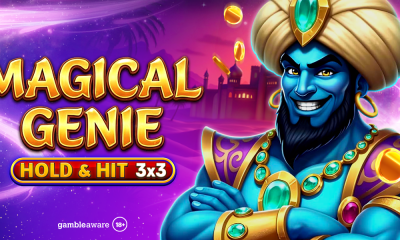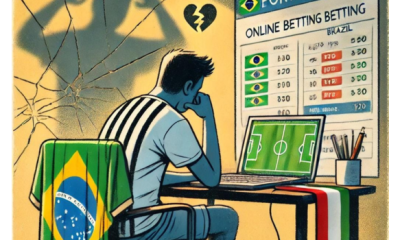Interviews
Exclusive Q&A with Si Crowhurst, VP Vungle Creative Labs

We usually start with a brief introduction. Could you tell us about yourself and your current role in your organization?
S.C.: At Vungle, we strive to transform how people discover and experience mobile apps. Our goal is to be the trusted guide for growth and engagement, helping our clients optimise ad performance by creating and rapidly adapting ads that maintain user experience. As the VP of Vungle Creative Labs, I lead the charge on creating data-optimised content to drive engagement and increase returns for publishers and advertisers, ranging from indie studios to powerhouse brands.
Vungle Creative Labs’ secret to success is the multidisciplinary DNA of the team that combines creatives, technologists and data analysts. We’re constantly advancing our creativity and automation platform for custom creative, using data and machine learning to ensure our clients are on the leading edge of mobile advertising.
The main focus of this interview is Vungle’s joint initiative with the WHO/UN Call Out to Creatives to Help initiative – for creating ads and in-app advertising for public health awareness. How did this project come up? Who made the first moves?
S.C.: At the height of the pandemic, the United Nations/World Health Organization launched its first ever “call out to creatives to help” and we simply felt that it was an opportunity to create some really impactful work and really live up to our values. In short, we wanted to do our bit.
The focus of the brief was for designers to create visual content explaining what steps people can take to slow the COVID-19 pandemic and tackle harmful misinformation campaigns. In a modern-day ‘Rosie the Riveter’ effort, we pooled our design talent, data analytics and gaming expertise and set to work creating a series of playable ads (i.e. interactive ads). Drilling into the principles of gamification, we created ads to drive user engagement around the key WHO messages of maintaining physical distancing and personal hygiene.
Tell us a bit more about the whole thing. Basically, you send health awareness messages just like in-app advertisements. Tell us more about the processes involved?
S.C.: The campaign strategy we developed and sent into the WHO/UN focused on delivering playable or interactive ads that carried a public health message instead of a consumer brand performance ad. The design process was also similar. We know from our wider work that gamification works in in-app advertising because it triggers powerful human emotions – think: the need for achievement, competition and status; the desire for reward etc. – so we applied the same thinking to this context. In one design, people interacting with the ads had to interact with the screen, swiping back and forth for the duration of time it takes to wash your hands before they could continue in their given app.
What is exactly Vungle’s role in it? Do you use your data, testing and research insights to create, place and run the health awareness in-app ads, just like you do in the case of usual commercial ads?
S.C.: After reviewing the UN/WHO’s main goals and objectives, we selected the playable ad format as the most effective creative medium. Playable ads are dynamic, non-verbal ads that can transcend language and cultural barriers that could otherwise mean that certain messages don’t carry or fall flat. Visual language is a powerful way to drive home messages and encourage positive behaviour. We knew as the weeks of lockdown passed, there had been a significant uplift in mobile app downloads, so this format was really useful given the context.
The team developed several creative options, choosing to capture the key messages of physical distancing and personal hygiene; some of the most salient health messages that many governments have advocated as fundamentally necessary to the emergency response. We then applied creative testing to learn, scale and adapt the ads at rapid speed to enhance user experience while still achieving engagement goals.
How are the users reacting to these health messages through in-app ads. Are their responses in similar lines as towards the commercial ads?
S.C.: We’re delighted to say that the ads have attracted over 36,771,804 million viewers so far, reaching both Apple and Android users in over a dozen countries. Excitingly, the work now also sits in a WHO library of artwork that will be used to educate individuals and communities all across the world as we pass through this global crisis and, hopefully, learn from it for next time. You see the library here: UN COVID-19 Creative Content Hub. In terms of the comparison to commercial ads, the click through rate has been impressive – 55 percent higher than the average click rate for advertising campaigns in apps –, but given the variables involved in the ad content and aims, you can’t really compare apples with oranges!
You recently wrote about monetization strategies for in-app adds during COVID-19 outbreak. How are things going in the in-app monetization front over the last two months? Are the ad engagement and the revenues from in-app monetization going up or down? Would love to hear some stats and observations on this topic.
S.C.: As with every major crisis, the public turns to news and online platforms for information. With school closures and mandatory work-from-home policies, many of us in the industry expected some uptick in the number of mobile games being downloaded, and the initial upsurge post-lockdown was pretty massive. While entertainment advertisers are seeking to leverage this increase in demand and garner extra conversions as a result, it still feels too early to speculate on how things are going in monetisation and how resilient companies will be as we navigate these unchartered waters.
That said, as time goes on, we’re likely to see more and more people turning to apps that run on freemium models. This is what happened in China during the lockdown there. With users flocking to apps, it’s a good time for mobile marketers to strategically optimise their in-app spend, but we recommend engaging with partners who can really help them navigate this uncertain terrain.
We focus on the gaming and gambling sector. The real world of sports has come to a standstill, with all the major sporting events getting cancelled. How did that affect the mobile advertising sector? Is there being a case of another door opening when one door is shut?
S.C.: While in-app advertising for sporting and gambling apps has taken a hit, users have transferred their attention to other apps that help tackle boredom, find some fun or, in many cases, manage their anxieties – for example, anecdotally we know that people have been trying to “upskill” with language apps like Memrise or Duolingo. So, the users are still there, but their allegiance to which apps has simply changed. When sporting events start up again (and as we’ve seen with Premier League football recently restarting), we can expect the sector to see a change in their fortunes.
We shall conclude with a look into the future. What are the major changes, if any, that we could see in mobile advertising? Our readers appreciate your insights on this.
S.C.: AI continues to shape the future of mobile advertising, with the continued proliferation of machine learning algorithmic and automated bidding products from the likes of Facebook and Google having a strong influence. These technologies are taking control away from advertisers with respect to which target levers to pull in their campaigns and instead decisions are being made based on data. This data includes aggregated intelligence from different industries and markets, as well as billions of consumer data points like key words and searches, device types, and geographic locations – all of which will inform what works best in terms of ad spend and budget allocation.
“Seed” audience data – consisting of users who have already shown their interest by taking actions like clicking an ad or purchasing a product – and creative remain the two most impactful levers for a marketer to influence performance and scale. This has led to considerable investment in creative studios and technology that support the ability to produce massive amounts of creative variants, which can be piped into campaigns for testing. Creative that is adaptive and responsive to user preferences will continue to grow.
Finally. short-form, video-sharing apps are a huge trend, and have enormous potential to reshape mobile advertising. Because this type of content feels more native – its users self-describe as creators rather than “influencers,” developing ways to draft behind it is exciting new territory we need to explore.
Powered by WPeMatico
Compliance Updates
Endorphina Compliance Strategies Explained ahead of HIPTHER Prague Summit
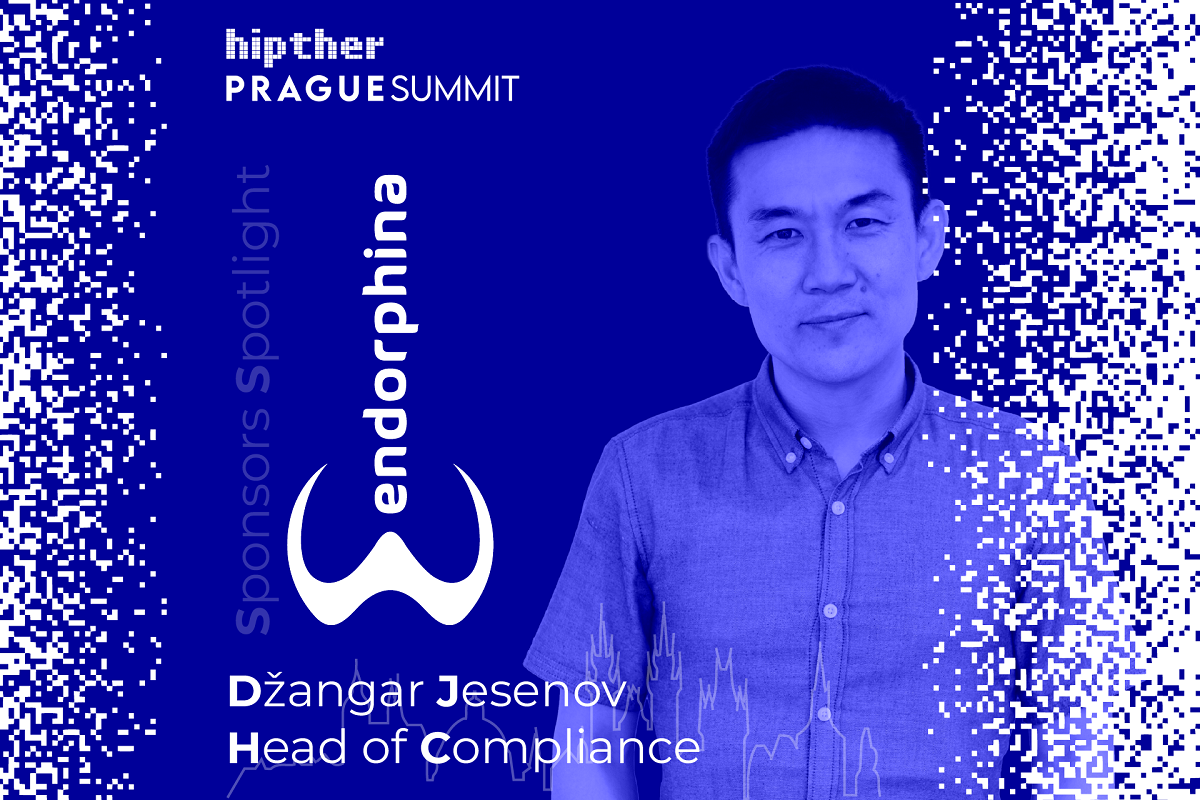
Ahead of the HIPTHER Prague Summit 2026, we speak with Džangar Jesenov, Head of Compliance at Endorphina, to explore how the company approaches regulatory excellence, market expansion, and certification in an increasingly complex global iGaming landscape – and how strong compliance frameworks support sustainable growth across Tier-1 European markets.
You have been leading Endorphina’s compliance function since 2021. How has the regulatory landscape in Europe evolved during this period, and what shifts have had the biggest operational impact on suppliers?
If I were to compare Endorphina in 2021 and Endorphina in 2026, I would describe them as two fundamentally different projects that nevertheless share the same core identity. The primary objective remains unchanged. However, the tools, scope, and operational framework used to achieve that objective have evolved significantly.
The development of the project reflects various external factors, including increasingly stringent regulatory requirements across multiple jurisdictions, technological advancements particularly within the financial sector and, importantly, substantial strengthening of human resources. Ultimately, people remain the most critical element in any successful project.
– From a regulatory perspective, I would particularly highlight the introduction and expansion of B2B licensing policies
Across jurisdictions on different continents, and the increased responsibility placed on game suppliers.
– Most notably, the heightened focus on player protection and security
In my view, enhanced player safety is one of the most important developments in the industry. Delivering engaging, high-quality games that are fully compliant with applicable legal frameworks is the foundation of any successful online platform and this is a commitment we uphold 24/7/365.
Endorphina has successfully expanded its presence across Tier-1 European markets. From a compliance perspective, what are the key pillars that enable smooth market entry and long-term sustainability?
In practice, there are unfortunately no “miracle tools” that would allow us to operate seamlessly at the highest regulatory level.
– I may not be saying anything new or particularly surprising here, but behind every jurisdiction we enter lies a substantial amount of work
Each market requires extensive hours of analysis, including a detailed review of regulatory obligations, comparison of local data requirements and reporting outputs, development of internal policies tailored to the specific regional framework, structured internal data sharing across project teams, and the implementation of oversight mechanisms to ensure compliance with newly introduced rules.
There is a significant amount of daily routine involved continuous processes, reporting, analysis, and, where necessary, re-implementation of procedures, including updates or revisions of internal regulatory frameworks.
Certification and regulatory alignment remain major challenges for many suppliers. How does Endorphina structure its internal processes to ensure efficiency while maintaining full regulatory integrity?
With the development of regulatory obligations, our practices in this area are also evolving. Compliance in the gambling business matures like fine wine. The more stable your team is, the stronger your position on the market becomes. Today, regulations are being introduced in many new jurisdictions where gambling was completely prohibited just a few years ago, and I see this as progress from a regulatory perspective.
– Our internal processes are continuously evolving toward the automation of data that does not require increased attention
Human resources are instead focused on information that is more relevant and requires deeper integrity.
With increasing focus on information security, responsible gaming, and technical standards, how do you see the role of compliance teams evolving within modern iGaming organisations?
As regulatory obligations continue to evolve, so does our practical experience in this area. Compliance in the gaming industry matures over time – much like fine wine.
– The more stable and experienced your team is, the stronger your position in the market becomes
Today, regulation is being introduced in many new jurisdictions where gambling was completely prohibited just a few years ago. I see this as a positive development and a clear indication of progress from a regulatory perspective.
Endorphina has built a reputation as a trusted slot provider with a strong global partner network. How should compliance, product development, and commercial teams collaborate today to support scalable growth?
As Head of Compliance, I believe scalable growth is only achievable when compliance, product development, and commercial teams operate in full alignment rather than in silos. Compliance must be involved from the earliest stages of market entry and product design to prevent delays, reduce regulatory risk, and support sustainable expansion.
– Product development should focus on modular, certification-ready solutions that allow efficient adaptation across multiple jurisdictions
Commercial strategy must remain closely aligned with regulatory feasibility, ensuring that opportunities are both attractive and compliant. Ultimately, stable and experienced teams are the key factor in building long-term, regulatorily resilient growth.
Looking ahead to the next 12–24 months, which regulatory or market developments should operators and suppliers be preparing for most carefully?
In this area, we are working very intensively. Looking ahead, I anticipate further increases in regulatory obligations, faster development of regulated markets, and structural changes in core online gaming products.”
– I expect deeper integration of games with the player environment, placing greater emphasis on individual profiling and personalization of each session
These evolving models will inevitably be reflected in regulatory frameworks, with a stronger focus on player protection and proper tax accountability. At the same time, regulators will increasingly compete to attract high-quality market participants, a category to which Endorphina clearly belongs.
In the near-term perspective, many of today’s processes will become standard industry practice, while additional requirements will emerge, particularly those linked to the accountability and oversight of key individuals within licensed entities.
Endorphina is the GamingTECH Awards Party & Ceremony Sponsor at HIPTHER Prague Summit 2026. What would you like operators, partners, and industry peers to take away from engaging with your team during the event?
Thank you for the opportunity to be among the first to welcome our friends. First and foremost, I would like to thank everyone who will be joining us in person in one of the most beautiful cities in the world, Prague.
I wish all participants a truly enjoyable experience.
– Make the most of every moment spent among inspiring people
Boost your personal endorphin levels and take the opportunity to get to know the Endorphina team more closely.
The post Endorphina Compliance Strategies Explained ahead of HIPTHER Prague Summit appeared first on Eastern European Gaming | Global iGaming & Tech Intelligence Hub.
AI
FlexPlay: building a platform made to grow with its partners
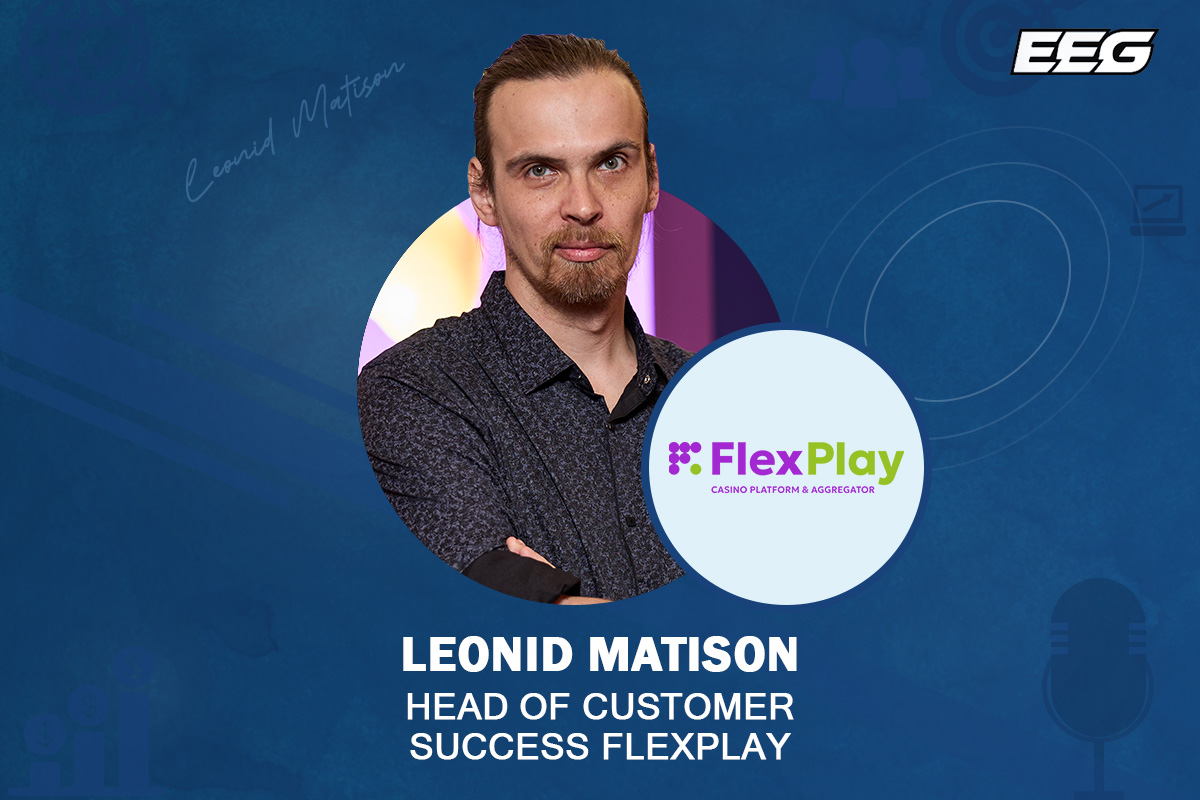
FlexPlay is entering a new phase with the launch of its own casino platform. Leonid Matison, Head of Customer Success, speaks with EEGaming about what inspired the company’s evolution, how it is helping partners adapt to change, and why a focus on flexibility, creativity, and collaboration is driving its vision for the future.
What inspired the move into the platform space, and how did that background shape your approach to creating it?
FlexPlay was born from EvenBet Gaming out of working closely with operators and studios as an aggregator, so we had a very clear view of where existing platforms were falling short. Many operators were forced to adapt their business models to rigid technology instead of the other way around.
Moving into the platform space was a natural evolution. We wanted to build a product that reflects how the market actually works today: fragmented regulation, fast-changing player behaviour, and the need to launch, test, and adapt quickly. That background shaped our approach significantly. Instead of building a “one-size-fits-all” platform, we focused on modularity, flexibility, and speed, so operators can grow without having to rebuild their infrastructure every time their strategy changes.
The platform market is full of established names. What makes FlexPlay stand out, and what kind of identity are you building for the brand?
Our differentiation isn’t about being louder or bigger — it’s about being more adaptable. FlexPlay is designed as a partner-centric platform, not a closed ecosystem.
We are building an identity around flexibility, transparency, and collaboration. Operators can customise their product, UX, content strategy, and growth roadmap instead of fitting into predefined templates. Commercially, we also remove unnecessary pressure at early stages, for example with models where partners don’t pay content fees until they actually start growing.
In a crowded market, identity comes from how you work with partners day-to-day, not just from features on a website.
You have described FlexPlay as a platform that “evolves alongside its partners.” What does that look like in practice for operators working with you?
We don’t treat launch as the finish line. We stay actively involved after go-live.
Operators receive ongoing support in analysing performance, adjusting content portfolios, testing new mechanics, and refining player engagement strategies. Our platform allows operators to add, remove, or prioritise content quickly, run experiments, and respond to real player data instead of assumptions.
We also actively listen to partner feedback and translate it into platform improvements. If a feature or workflow doesn’t serve operators in real conditions, we adjust it.
How does that flexibility help brands entering fast-changing or emerging markets where conditions can shift quickly?
Emerging markets rarely follow a stable or predictable path. This year, we are going to SiGMA Africa for the first time, and this continent is just the right example of how quickly and often market transforms. Regulation changes, payment preferences evolve, and player behaviour can shift very quickly.
FlexPlay’s flexibility allows operators to adapt without disruption: adjusting payment flows, reconfiguring bonuses, changing content focus, or localising UX. The platform isn’t locked into rigid structures, so operators can react to market signals in weeks rather than months.
This is especially important for brands entering highly volatile markets in Africa or LatAm, where the ability to pivot often determines success.
AI is a hot topic right now. How are you exploring its potential at FlexPlay, and what do you find most exciting about how it can genuinely support operators and players?
We approach AI very pragmatically. For us, it’s not about replacing people or creating black-box systems, but about enhancing decision-making.
We are exploring AI in areas like player segmentation, behavioural analysis, and content recommendations. It may help operators understand what players actually want and when. AI can also support smarter lobbies, more relevant promotions, and better detection of engagement patterns.
What excites us most is AI’s ability to reduce noise. It can highlight what truly matters and help them act faster and more confidently. But it can’t and will not fully replace strategic decision-making by humans.
Personalisation has become an essential part of modern player engagement. What does it mean to you in practice, and how is FlexPlay helping operators bring it to life?
For us, personalisation means relevance. Not just visuals or messages, but the entire player journey. FlexPlay enables operators to segment players based on behaviour, preferences, and performance, and then tailor content, bonuses, and communication accordingly. This helps players discover games that actually match their interests instead of scrolling through endless lobbies.
Good personalisation improves retention and trust. Players feel understood rather than pushed, and operators benefit from stronger long-term engagement.
But we suggest avoiding over-personalisation: if the players see only the recommended “long tail”, it may affect the operator’s revenue. Manual curation in addition to personalisation (like featuring a seasonal game during a holiday, or an operator’s personal favourite) allows for strategic promotions and branding.
Growth can be exciting but also challenging for operators. How do you and your team at FlexPlay support partners as they take that next step?
Growth often exposes weaknesses in technology or strategy. Our role is to help operators scale without losing control.
We support partners with analytics, reviews, and strategic guidance, helping them prioritise what to scale and what to optimise first. Technically, the platform is built to handle growth without forcing structural changes. Commercially, we remain flexible so that a transition is easier for operators.
Looking ahead, what are the key milestones or developments you are focused on for the year ahead?
Our focus is on deepening platform intelligence and partner value. This includes expanding AI-driven tools, improving content discoverability, and enhancing automation where it adds efficiency.
We are also investing in better insights for operators: not just reporting, but actionable recommendations that help them make smarter decisions faster.
Another priority is continuing to refine our platform based on real partner use cases, not theoretical ones.
And finally, when you think about FlexPlay’s future, what do you hope the company will represent within the wider iGaming industry?
I hope FlexPlay will be seen as a trusted growth partner — a company that helped operators build sustainable businesses rather than short-term results.
In an industry that often focuses on speed and scale, we want to represent balance: technology that adapts, content that makes sense, and partnerships built on mutual success.
If operators look back and say, “FlexPlay helped us grow the right way,” that will be the real measure of success.
The post FlexPlay: building a platform made to grow with its partners appeared first on Eastern European Gaming | Global iGaming & Tech Intelligence Hub.
boutique studios
Movers and Shakers: The blueprint for boutique studios looking to crack America
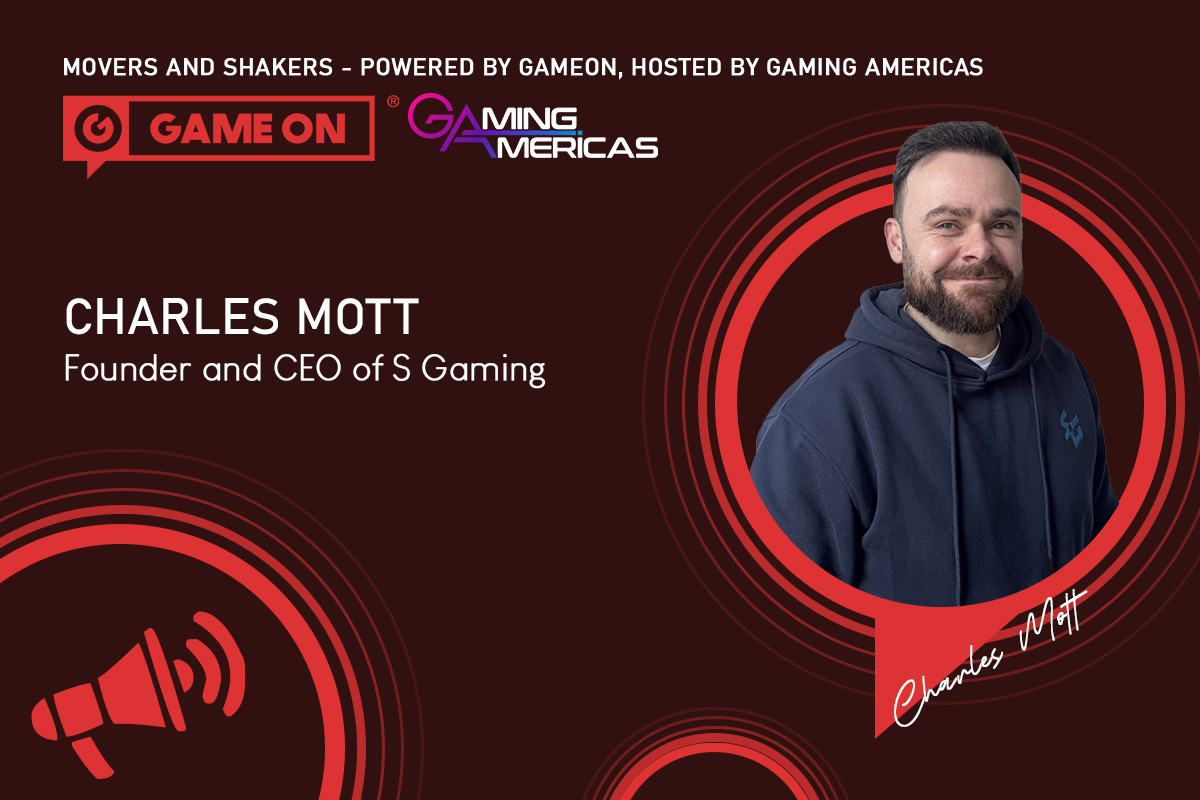
“Movers and Shakers” is a dynamic monthly column dedicated to exploring the latest trends, developments, and influential voices in the iGaming industry. Powered by GameOn and supported by HIPTHER, this op-ed series delves into the key players, emerging technologies, and regulatory changes shaping the future of online gaming. Each month, industry experts offer their insights and perspectives, providing readers with in-depth analysis and thought-provoking commentary on what’s driving the iGaming world forward. Whether you’re a seasoned professional or new to the scene, “Movers and Shakers” is your go-to source for staying ahead in the rapidly evolving iGaming landscape.
Charles Mott, Founder and CEO of S Gaming, says finding success in the US is a tough task, but that studios who can replicate the magic of the casino floor have what it takes to make it stateside
There are plenty of European studios that have set their sights on finding success in the US, but very few have actually managed to achieve it. This is because they are making a common mistake, and that’s failing to translate the preferences of US slot players into their games.
For more than a decade now, the UK and European markets have been defined by “the chase” – high volatility slots with massive, infrequent max wins and jackpots that deliver anticipation and thrills, but that also exhaust the player’s balance in minutes.
But if you walk on to the floor of any Las Vegas casino, the atmosphere is different. It’s about “time at machine”. It’s the neon, the regular dopamine hits of smaller wins and the ability to make $100 provide an entire evening’s worth of entertainment.
As the US market increasingly moves to online, with more states embracing regulated iGaming, it’s no longer finding its feet with players now actively looking for a digital version of the land-based soul they have loved for many years.
Moving away from the “big win” to the “long session”
US players have been culturally conditioned by the physical casino experience. Unlike the high-stakes digital environment of Europe, the American player often views slots as a leisure activity rather than a jackpot hunt.
This is why S Gaming has focused on fun, entertainment and sustainability, with our games matching the “steady tortoise” cadence of land-based slot machines. They still deliver lots of big win potential, but across longer and more engaging sessions.
For operators like BetMGM and Fanatics, both of which we’ve recently partnered with, it’s not just about fun, it’s about retention.
A player who loses their balance in three minutes is a churn risk, but a player who wins small, frequent prizes stays in the ecosystem for longer and ultimately generates a much higher lifetime value.
Efficiency over ego
But it’s not just about having the right games, distribution is also key to cracking America. This is a notoriously difficult market because it’s not one jurisdiction, it’s five (and counting) regulatory islands and in each, you need to secure regulatory approvals.
This is actually a moat that keeps many smaller studios out. It’s an issue we had to overcome, and ultimately looked for a partner that could help us bridge the gap. Our agreement with Gaming Realms allows us to use its remote game server and licences to launch into US states.
This “Infrastructure-as-a-Service” model allows a studio to focus on “game grammar” (math and art) while the partner handles the “plumbing” (compliance and connectivity). It’s the leanest way to hit the ground running with a tier-one operator across multiple states simultaneously.
Why tier ones are buying in
You might be wondering why a tier one giant like BetMGM has joined forces with a boutique UK studio and facilitated its launch into the US.
But the reality is that operators are fighting soaring acquisition costs right now and this means they no longer want more games, they want differentiated games that reduce churn and keep players coming back for more.
Our focus on sustainable entertainment aligns with current US regulatory requirements and the focus on responsible gaming. Games designed for longer, lower stakes sessions are inherently “safer” and more palatable to regulators and risk-averse operators alike.
And they just hit the mark more with players. Sure, winning is a big part of playing online slots, but how you get to the win and the perceived entertainment value is now just as if not more so important – not just in the US but in the UK and Europe, too.
The data-driven evolution
Success does not come from a single launch – it comes from having a feedback loop. We now have a handful of games live in the US market, including our flagship Triple 7 Jackpot title, from which we are gathering real-time data on player behaviour.
This is allowing us to move from “what we think players want” to “what the data tells us they love” and this in turn is allowing us to refine our product roadmap and the games we are producing for the US market, ensuring each title is more culturally resonant than the last.
The new era of transatlantic growth
Cracking America in 2026 isn’t about having the loudest brand of the biggest marketing budget – it’s about understanding the psychology of the casino floor.
The studio’s that succeed will be those that realise the US player isn’t looking for a new way to gamble, they’re looking for a digital version of the “Vegas” feeling they’ve known and loved for decades.
The post Movers and Shakers: The blueprint for boutique studios looking to crack America appeared first on Americas iGaming & Sports Betting News.
-

 Baltics6 days ago
Baltics6 days agoHIPTHER Baltics Launches in Vilnius with Agenda Revealing Lithuania’s 2026 Regulatory Reset
-

 Andrew Cardno6 days ago
Andrew Cardno6 days agoQCI Launches its Data Community Platform in Australia
-

 Amusnet6 days ago
Amusnet6 days agoAmusnet Enters into Strategic Partnership with Twinsbet Arena in Vilnius, Lithuania
-

 Latest News6 days ago
Latest News6 days agoSpinomenal Debuts Magical Genie — 3×3 Hold & Hit Adventure
-

 AI-Powered Compliance and Player Support6 days ago
AI-Powered Compliance and Player Support6 days agoDigerCompanion — Digicode’s AI Solution for Compliance and Player Support in Regulated iGaming
-

 Brazil6 days ago
Brazil6 days agoOctoplay Enters Brazilian Market Through a Strategic Partnership with Superbet
-

 Free spins6 days ago
Free spins6 days agoOnlyPlay Releases Pub Fruits
-

 BIS SIGMA6 days ago
BIS SIGMA6 days agoBrazil between expansion and fiscal pressure










